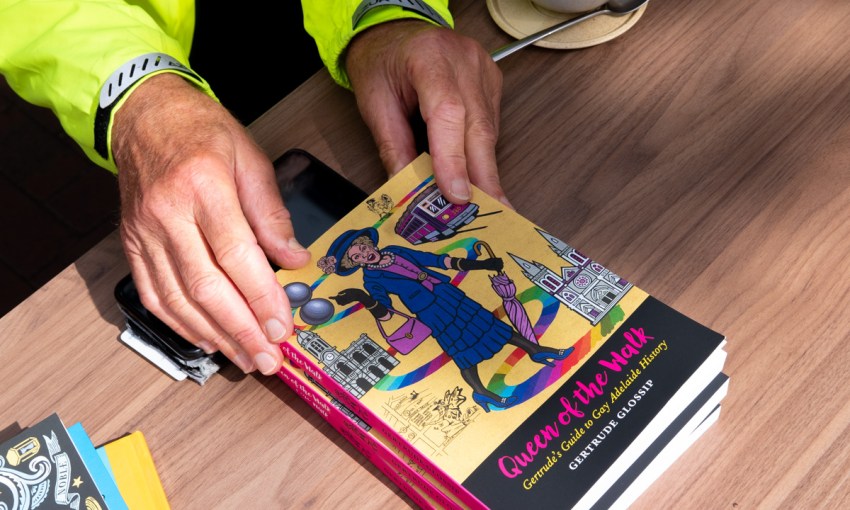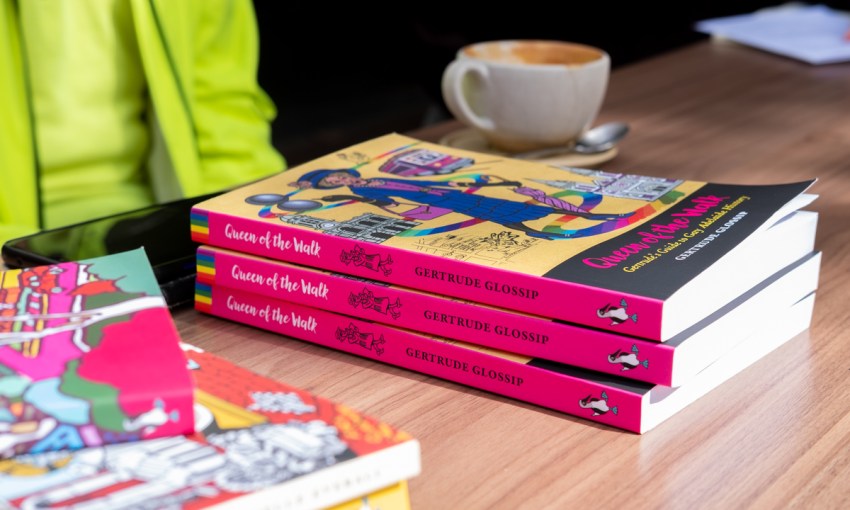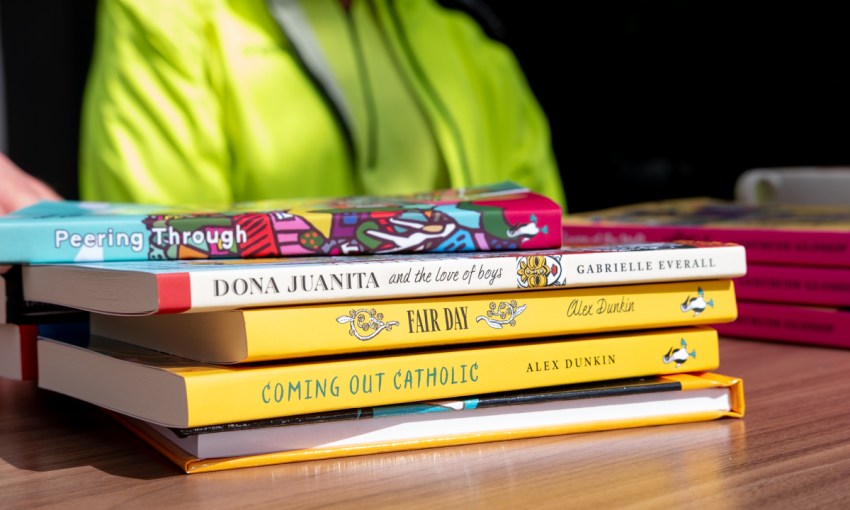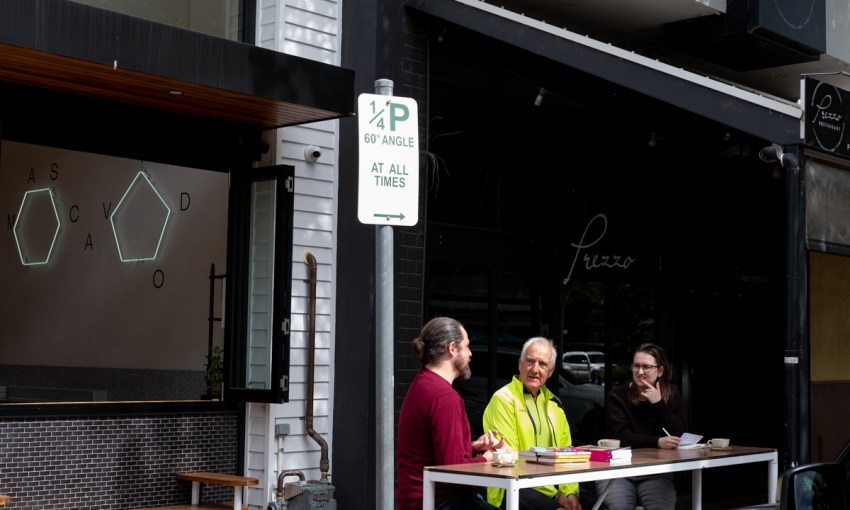Buon-Cattivi Press owner Alex Dunkin speaks with CityMag about preserving local queer history in print and the role micropublishers play in Adelaide’s literary scene.
Introducing Buon-Cattivi Press: A micropublisher telling Adelaide’s queer history
CityMag meets Alex Dunkin and Will Sergeant on Hutt Street, near where the pair would meet while Will’s alter-ego, Gertrude Glossip, wrote Queen of the Walk.
Renee Miller is Writer in Residence at The Mill. This work was contributed through The Mill’s writer-in-residence program.
For more information on the program, see here.
Alex is the founder of Buon-Cattivi Press, a local micropublisher with a special interest in capturing and preserving Adelaide’s queer history in print.
On the table in front us are three copies of Queen of the Walk – now adorned with a colourful illustration of Gertrude, in full-frock, trailing along the rainbow path of Adelaide’s queer history – sitting beside a selection of Buon-Cattivi’s other releases.
“I’m quite thrilled now, and I love seeing it and thinking, ‘Yes, there it is!’” Will beams.
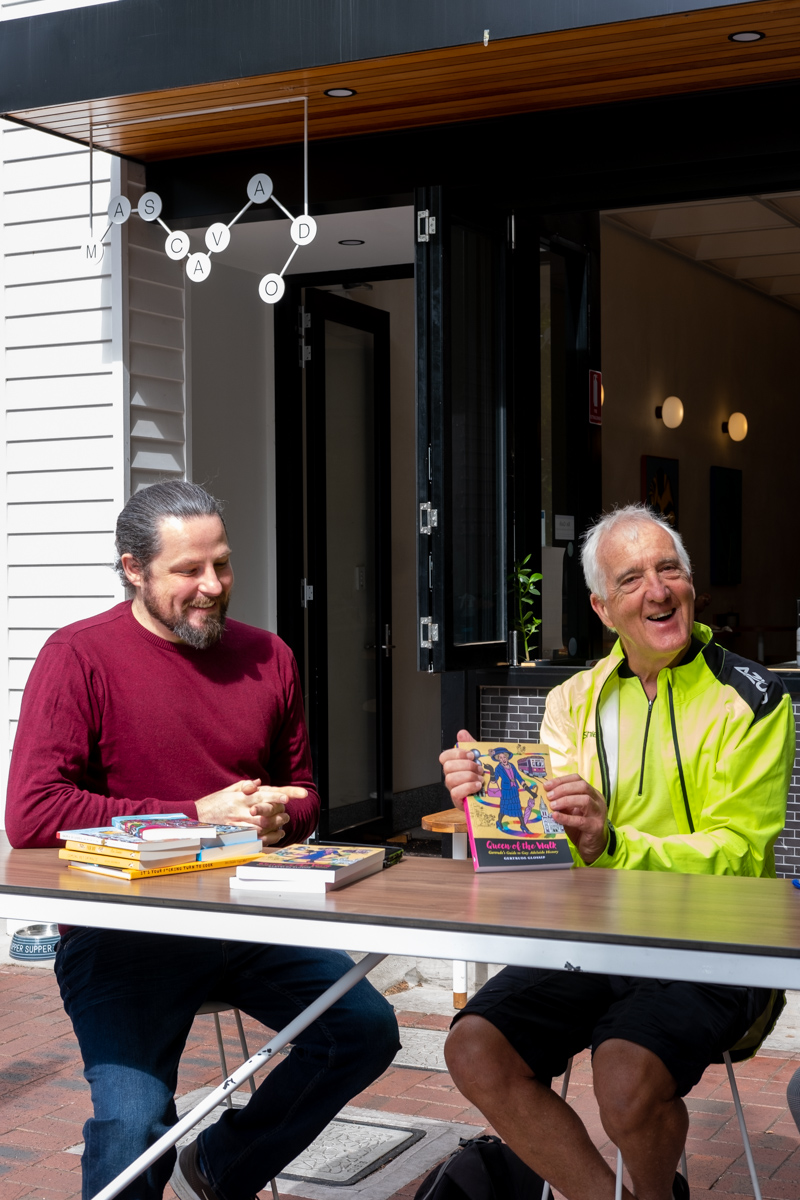
L—R: Alex Dunkin and Will Sergeant (beaming)
The book captures his 25 years of hosting history walks in Adelaide. Just as charismatic as his alter-ego, Will is dressed in striking neon cycling attire.
Beside him, Alex is reserved and articulate, though he becomes noticeably more animated as our discussion turns to the business of books.
“I met Will at Picnic [in the Park] 2019,” Alex says of Queen of the Walk’s origins. “And after I thought, ‘Oh, why don’t we just write a gay history book?’ And then Will came back – I am assuming, spoke to Gertrude a bit – and suggested the tour guide instead.”
Queen of the Walk ditches the chronological structure you might expect of a historical work, opting instead to imitate a walk through Adelaide’s CBD alongside Gertrude. It adds historical perspectives to the sometimes-peripheral landscapes of our busy city.
Buon-Cattivi and Gertrude’s walks make for a natural pair. Telling Adelaide’s queer history has been a passion for Alex since the label debuted in 2018 with Peering Through: Sharing Decades of Queer Experiences, an anthology of queer elders’ oral histories collected through interviews, edited by Alex and Greg Fell.
“I was drawn to Peering Through and Gertrude because I think it’s important to keep the history recorded in some form,” Alex explains.
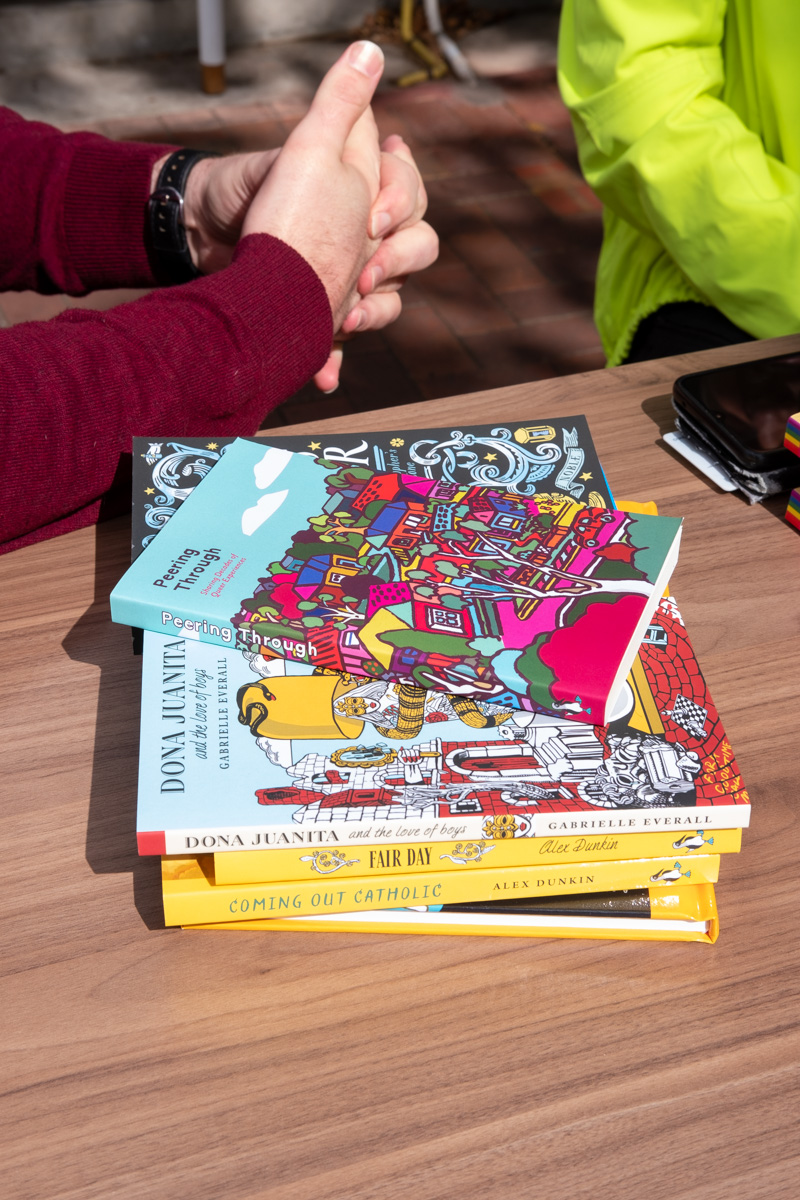
A selection of works from Buon-Cattivi Press
Adelaide’s queer history is not all rainbows. Queen of the Walk has sections dedicated to the drowning of Dr George Duncan (also the subject of an Adelaide Festival show this year), and both books recount a time when homosexual acts were illegal in South Australia.
Buon-Cattivi balances the telling of the bright and ugly parts of queer history by capturing “the natural voice”, as Alex puts it. Centring voice is a powerful creative choice when telling the history of those forced to live their lives in the margins.
“That was something else I was excited about, not just Gertrude’s voice or Gertrude’s understanding of history, but because of (late historian) John Lee’s work being used in [Queen of the Walk]… these voices that may have just been there for a historian or archivist to collect, and the occasional storytellers, they come back through with Gertrude.”
Those who’ve toured the city with Gertrude know the charms of her delivery. Capturing her tone in writing was an important focus for the work.
“Gertrude makes these comments with this wink in the eye. Gertrude is performative,” Alex says. “Without the visual, all you have is her words, so it’s trying to convert them into the character.”
Throughout the writing process, Alex would often push Will to give Gertrude “more colour, more voice”.
“We want Gertrude. We want Gertrude coming through,” Will adds.
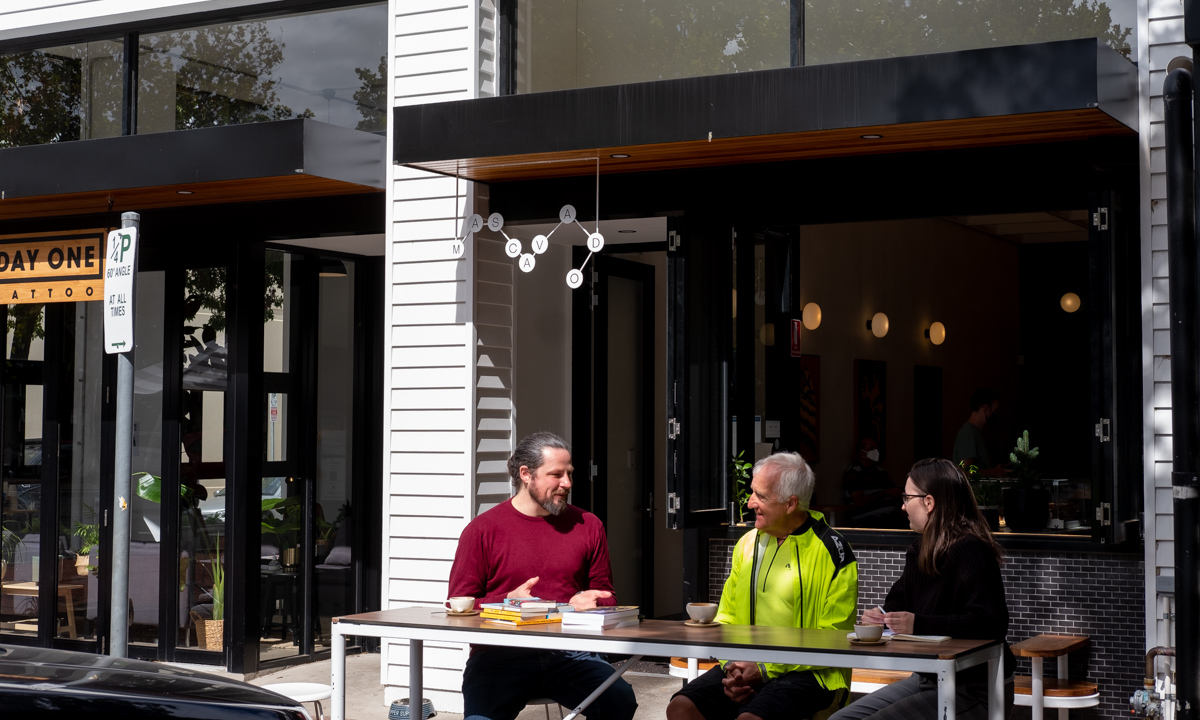
Buon-Cattivi’s approach to publishing is author-friendly, focussing on their comfort and excitement rather than holding them to strict publishing deadlines. This is a result of Alex’s own experiences as an author and journalist.
His first book, Coming Out Catholic, was published via a US company, which sold just as he had everything in motion to release his second book, Homebody, in 2016.
After a pay dispute, Alex wanted more control over the publishing process. Faced with the option of either self-publishing or setting up a micropublisher, Alex saw starting Buon-Cattivi as a “necessary experiment”.
“I find myself a bit protective, as well, from the author experience,” Alex tells CityMag. “So I make sure the royalties always go out as soon as it comes in.”
Buon-Cattivi’s focus on the artist’s experience helps the publisher authentically tell queer history, and has seen it become a home for unique and experimental Australian literature.
“Half is sort of recording important voices like Gertrude’s and Peering Through,” Alex says. “And then you have things like Gabrielle [Everall]’s Dona Juanita and the Love of Boys. It’s intense. It’s experimental, it’s a mixture of poetry and prose. It’s an evolving piece of work.”
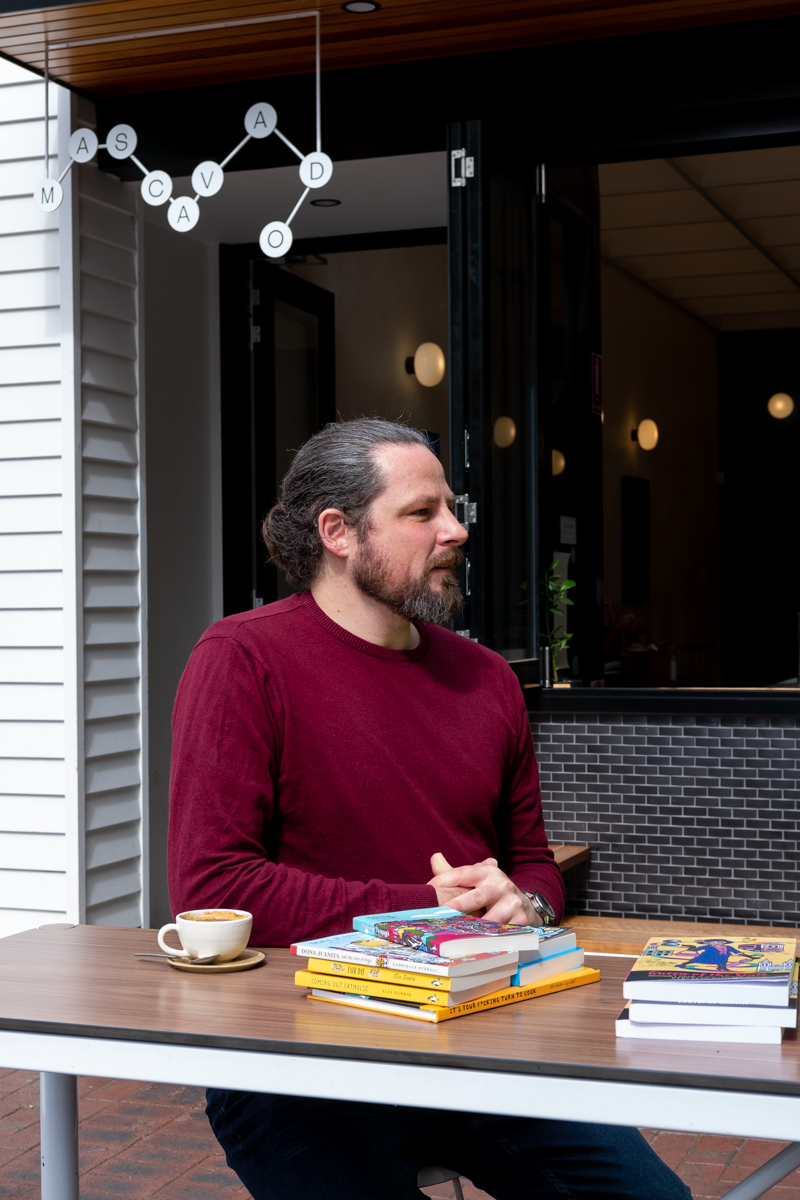
Alex Dunkin
Alex sees the small scale of his operation as an advantage. He can work closely with one or two authors at a time to build up their work.
“I don’t mind being considered a first step into publishing for people, so they can take risks and they get the publishing credit, then they can use that on their resume to bolster their next step,” he says.
He likens micropublishers to community publications like Blaze, a now-defunct Adelaide-focussed LGBTQIA magazine.
“It knew it’s a niche market, it wasn’t trying to go beyond that. So, it’s just sort of that – capturing those voices that otherwise would have been missed,” Alex says.
As for the future of the label, Alex currently has two projects in the works, and CityMag was privy to Will and Alex discussing the possibility of another Gertrude book.
“I think I would like to,” Will says. “As Gertrude likes to say, there’s that Sondheim song – ‘I Never Do Anything Twice’. I say always do everything at least twice ‘cause you learn so much the first time.”



